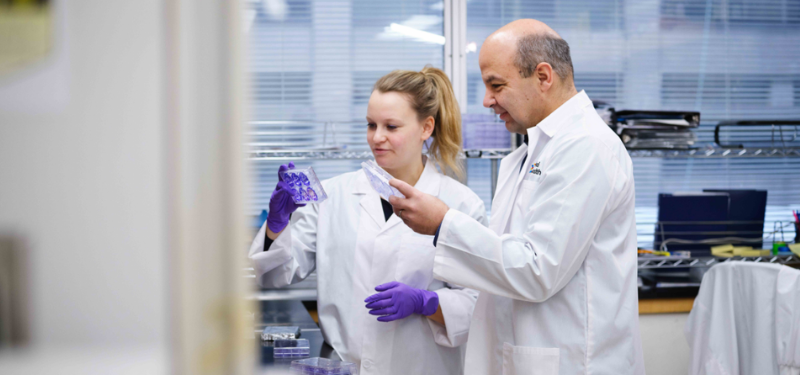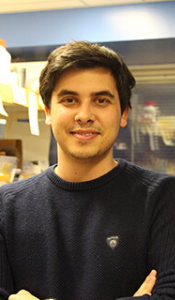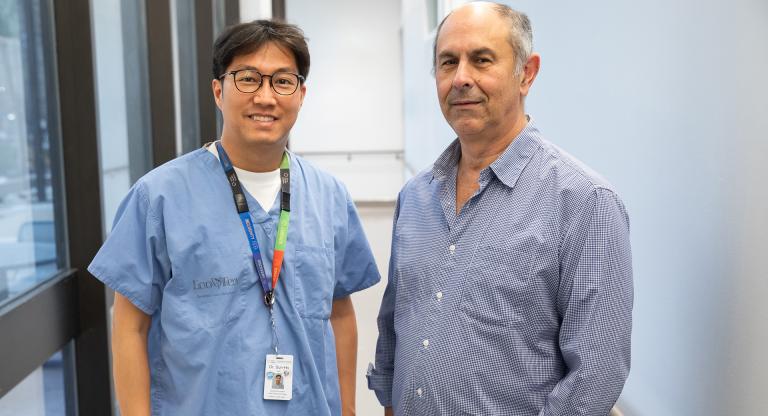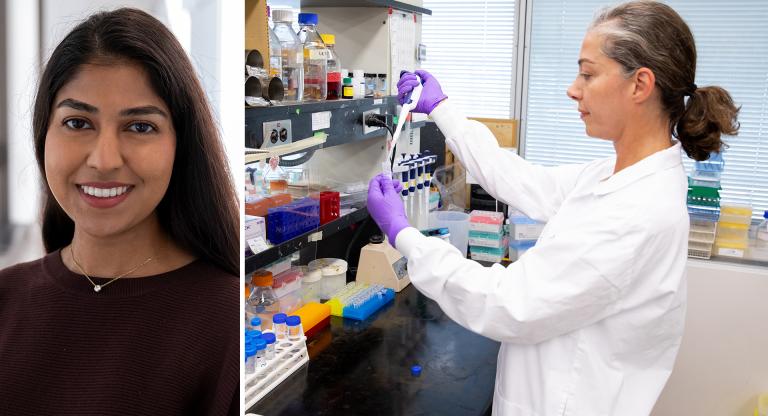Sinai Health study provides blueprint to cellular process of DNA repair

New research offers a deeper look at which proteins have the potential to repair DNA damage, in a paper that may have broader implications on how cancer patients are treated in the future.
In a new study out this month in Cell, researchers at Sinai Health’s Lunenfeld-Tanenbaum Research Institute (LTRI) used CRISPR, the revolutionary gene editing system, to chart a map of genes that specifies proteins involved in the repair of damaged DNA.

student Michele Olivieri
worked in the Durocher lab
at LTRI for this research.
To do that, the team treated cells with different drugs and agents known to induce different types of DNA lesions, allowing them to pick out, in a systematic way, which genes are important for cells to repair each class of lesion.
“Mutations induced by defects in the repair of the DNA is one of the most common causes of cancer,” said study co-lead and PhD student Michele Olivieri. “Being able to characterize which genes are important for the repair of a specific DNA lesion is vital in understanding how a tumour can develop in a patient, leading to novel potential strategies for cancer treatment.”
“Mutations induced by defects in the repair of the DNA is one of the most common causes of cancer,” said study co-lead and PhD student Michele Olivieri. “Being able to characterize which genes are important for the repair of a specific DNA lesion is vital in understanding how a tumour can develop in a patient, leading to novel potential strategies for cancer treatment.” Our DNA is being constantly damaged or broken and, fortunately, our cells have elaborate systems for detecting and repairing this damage in a way that doesn’t corrupt the information stored in our DNA.
These lesions, if not correctly repaired by cells, can result in mutations that can lead to the transformation of a normal cell into a cancer cell.
In their latest work, the LTRI team uncovered many new genes that were, until now, not known to be involved in the repair of DNA.
“Cancer research is essential — even during a pandemic,” said Daniel Durocher, senior investigator at LTRI and Canada Research Chair in the Molecular Genetics of the DNA damage response. “Cancer hasn’t taken a break and nor can we. Our work provides a road map for improving the use of DNA-damaging cancer therapies.”
For example, cancer is typically caused by DNA damage. Because cancer cells have compromised repair processes, many current chemotherapy agents act by causing further damage.
This work represents a comprehensive map of human responses to DNA-damaging agents that the researchers hope will stimulate assessment of new types of treatment, as well as improving use of current chemotherapies.












